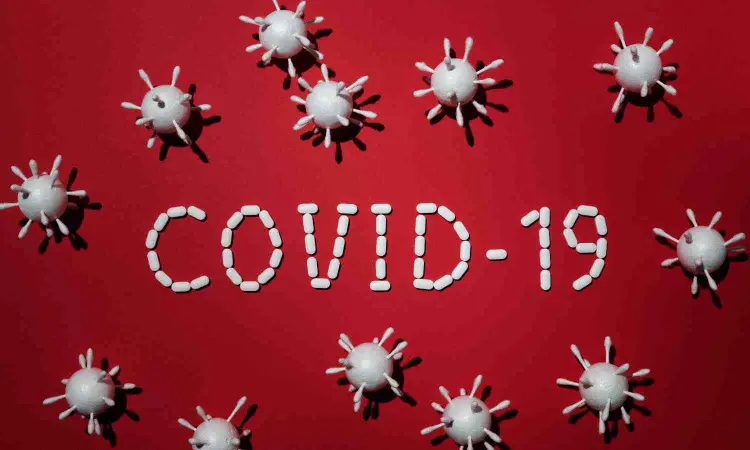- Home
- Medical news & Guidelines
- Anesthesiology
- Cardiology and CTVS
- Critical Care
- Dentistry
- Dermatology
- Diabetes and Endocrinology
- ENT
- Gastroenterology
- Medicine
- Nephrology
- Neurology
- Obstretics-Gynaecology
- Oncology
- Ophthalmology
- Orthopaedics
- Pediatrics-Neonatology
- Psychiatry
- Pulmonology
- Radiology
- Surgery
- Urology
- Laboratory Medicine
- Diet
- Nursing
- Paramedical
- Physiotherapy
- Health news
- Fact Check
- Bone Health Fact Check
- Brain Health Fact Check
- Cancer Related Fact Check
- Child Care Fact Check
- Dental and oral health fact check
- Diabetes and metabolic health fact check
- Diet and Nutrition Fact Check
- Eye and ENT Care Fact Check
- Fitness fact check
- Gut health fact check
- Heart health fact check
- Kidney health fact check
- Medical education fact check
- Men's health fact check
- Respiratory fact check
- Skin and hair care fact check
- Vaccine and Immunization fact check
- Women's health fact check
- AYUSH
- State News
- Andaman and Nicobar Islands
- Andhra Pradesh
- Arunachal Pradesh
- Assam
- Bihar
- Chandigarh
- Chattisgarh
- Dadra and Nagar Haveli
- Daman and Diu
- Delhi
- Goa
- Gujarat
- Haryana
- Himachal Pradesh
- Jammu & Kashmir
- Jharkhand
- Karnataka
- Kerala
- Ladakh
- Lakshadweep
- Madhya Pradesh
- Maharashtra
- Manipur
- Meghalaya
- Mizoram
- Nagaland
- Odisha
- Puducherry
- Punjab
- Rajasthan
- Sikkim
- Tamil Nadu
- Telangana
- Tripura
- Uttar Pradesh
- Uttrakhand
- West Bengal
- Medical Education
- Industry
Risk of Post-Acute Sequelae of SARS-CoV-2 Remains High Even with Vaccination During Omicron Era: Study

United States: A recent study published in the New England Journal of Medicine concluded that throughout the pandemic, the cumulative incidence of PASC during the first year after SARS-CoV-2 infection decreased whereas in the omicron era, the risk of post-acute sequelae of SARS-COV-2 infection remained substantial among vaccinated persons who had SARS-CoV-2 infection.
Post-acute sequelae of SARS-CoV-2 infection (PASC), commonly referred to as long COVID. It refers to a range of symptoms that persist for weeks or months after the acute phase of COVID-19 has resolved. Fatigue, tiredness, shortness of breath, cough, headache, joint pain etc are the common symptoms that are associated with SARS-CoV-2 infection. Considering this, Yan Xie, from the Division of Pharmacoepidemiology (Y.X.), Washington University, St.Louis, et.al conducted a study to evaluate the cumulative incidence of PASC during the first year after SARS-CoV-2 infection.
For this purpose, the research team used the records of the Department of Veterans Affairs from March 1, 2020, and January 31, 2022, to build a study population of 441,583 veterans who were infected with SARS-CoV-2 infection and 4,748,504 noninfected participants were used as a control group. After 1 year of SARS-CoV-2 infection, the cumulative incidence of PASC was estimated during the pre–delta, delta, and omicron eras of covid-19.
The study assessed 206,011 persons with no vaccination and SARS-CoV infection during the pre delta era, and 54,002 persons with no vaccination and SARS-CoV-2 infection during the Delta era. 84,943 persons with vaccination and SARS-CoV-2 infection were evaluated during the omicron era.
The findings revealed that:
• Unvaccinated persons infected with SARS-CoV-2, the cumulative incidence of PASC during the first year after infection was 10.42 events per 100 persons, in the pre-delta era, 9.51 events per 100 persons in the delta era, and 7.76 events per 100 persons in the omicron era.
• Among vaccinated persons, the cumulative incidence of PASC at 1 year was 5.34 events per 100 persons during the delta era and 3.50 events per 100 persons during the omicron era. Vaccinated persons had a lower cumulative incidence of PASC at 1 year than unvaccinated persons
• Decomposition analyses showed 5.23 fewer PASC events per 100 persons at 1 year during the omicron era than during the pre-delta and delta eras combined; 28.11% of the decrease was attributable to era-related effects (changes in the virus and other temporal effects), and 71.89%was attributable to vaccines.
“The researchers concluded that in the omricon era, the chances of infection by SARS-CoV-2 remained among vaccinated persons. The incidence of PASC during first year after DARS-CoV-2 infection decreased over the course of a pandemic”, researchers concluded.
Reference
Xie, Y., Choi, T., & Al-Aly, Z. (2024). Postacute Sequelae of SARS-CoV-2 Infection in the Pre-Delta, Delta, and Omicron Eras. The New England journal of medicine, 10.1056/NEJMoa2403211. Advance online publication. https://doi.org/10.1056/NEJMoa2403211
Deepanshi Bhatnagar (MSc Nutrition and Dietetics) is a professional with a master's degree in Nutrition and Dietetics from MRIIRS. With a strong academic background, she is well-versed in the principles of nutrition and dietary science. At Medical Dialogues, Deepanshi serves as the correspondent for fact-checking, where she is responsible for verifying and evaluating claims related to nutrition and diet, ensuring that all content is accurate, evidence-based, and scientifically sound.
Dr Kamal Kant Kohli-MBBS, DTCD- a chest specialist with more than 30 years of practice and a flair for writing clinical articles, Dr Kamal Kant Kohli joined Medical Dialogues as a Chief Editor of Medical News. Besides writing articles, as an editor, he proofreads and verifies all the medical content published on Medical Dialogues including those coming from journals, studies,medical conferences,guidelines etc. Email: drkohli@medicaldialogues.in. Contact no. 011-43720751


